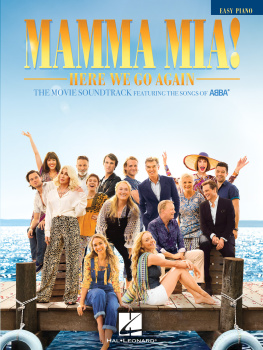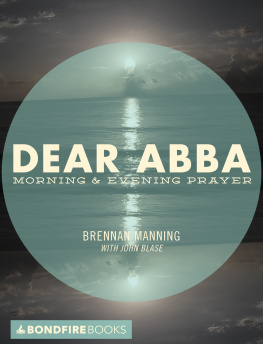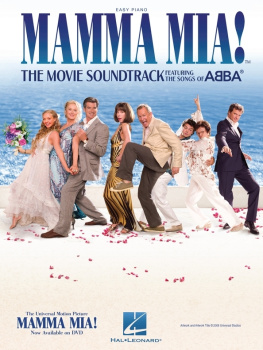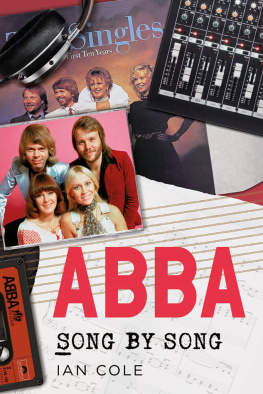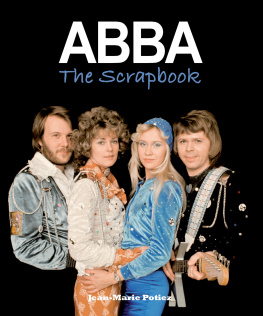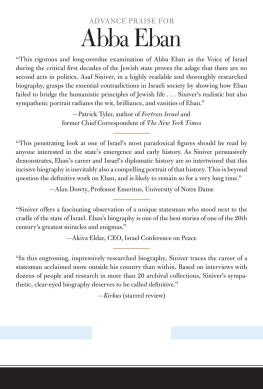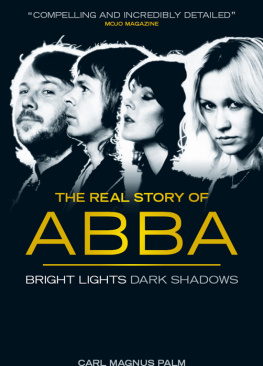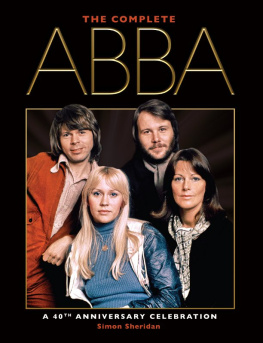Praise for the series:
All six books revel in the distinct shapes and benefits of an album, its ability to go places film, prose or sculpture cant reach, while capable of being as awe-inspiring as the best of those mediumsPhiladelphia City Paper
Each volume has a distinct, almost militantly personal take on a beloved long-player the books that have resulted are like the albums themselvesfilled with moments of shimmering beauty, forgivable flaws, and stubborn eccentricityTracks Magazine
At their best, these books make rich, thought-provoking arguments for the song collections at handThe Philadelphia Inquirer
Praise for individual books in the series:
Dusty in Memphis
Warren Zanes is so in love with Dusty Springfields great 1969 adventure in tortured Dixie soul that hes willing to jump off the deep end in writing about it Rolling Stone
Zanes uses Dusty in Memphis as a springboard to ruminate eloquently on the history of Atlantic Records and the myth of the American SouthTracks Magazine
Forever Changes
Hultkrans obsesses brilliantly on the rock legends seminal discVanity Fair
The Kinks Are The Village Green Preservation Society
This is the sort of focus that may make you want to buy a copy, or dig out your old oneThe Guardian
This detailed tome leads the reader through the often fraught construction of what is now regarded as Daviess masterpieceand, like the best books of its ilk, it makes the reader want to either reinvestigate the album or hear it for the first timeBlender Magazine
Miller makes a convincing case for the Kinks 1968 operetta of English village life as a heartbreaking work of staggering geniusRay Davies greatest songwriting triumph and an unjust commercial dudwith deep research and song-by-song analysisRolling Stone
Meat is Murder
Full of mordant wit and real heartache. A dead-on depiction of what it feels like when pop music articulates your pain with an elegance you could never hope to muster. Meat is Murder does a brilliant job of capturing how, in a world that doesnt care, listening to your favorite album can save your lifeThe Philadelphia Inquirer
Pernice hits his mark. The well-developed sense of character, plot and pacing shows that he has serious promise as a novelist. His emotionally precise imagery can be bluntly, chillingly personalThe Boston Weekly Dig
The Piper at the Gates of Dawn
John Cavanagh combines interviews with early associates of Pink Floyd and recording-studio nitty-gritty to vividly capture the first and last flush of Syd Barretts psychedelic genius on the Floyds 67 debutRolling Stone
Packed with interviews and great stories will certainly give you a new perspective on Pink Floyd Erasing Clouds

Abba Gold
Also available in this series

The Kinks Are The Village Green Preservation Society,
by Andy Miller
Dusty in Memphis, by Warren Zanes
Meat is Murder, by Joe Pernice
Harvest, by Sam Inglis
Forever Changes, by Andrew Hultkrans
The Piper at the Gates of Dawn, by John Cavanagh
Sign 0 the Times, by Michaelangelo Matos
Unknown Pleasures, by Chris Ott
The Velvet Underground and Nico, by Joe Harvard
Electric Ladyland, by John Perry
Forthcoming in this series

Loveless, by David Keenan
Grace, by Daphne Brooks
Live at the Apollo, by Douglas Wolk
OK Computer, by Dai Griffiths
Aqualung, by Allan Moore
Let It Be, by Colin Meloy
Let It Be, by Steve Matteo
Abba Gold

Elisabeth Vincentelli

2004
The Continuum International Publishing Group Inc
15 E 26 Street, New York, NY 10010
The Continuum International Publishing Group Ltd
The Tower Building, 11 York Road, London SE1 7NX
www.continuumbooks.com
Copyright 2004 by Elisabeth Vincentelli
All rights reserved. No part of this book may be reproduced, stored in a retrieval system, or transmitted in any form or by any means, electronic, mechanical, photocopying, recording, or otherwise, without the written permission of the publishers.
Printed in the United States of America
Library of Congress Cataloging-in-Publication Data
Vincentelli, Elisabeth.
ABBA gold / Elisabeth Vincentelli.
p. cm. (33 1/3)
Includes bibliographical references (p. ).
eISBN-13: 978-1-4411-8255-5
1. ABBA (Musical group). Gold. I. Title. II. Series.
ML421.A2V56 2004
782.421660922dc22
2003026507
Contents
Acknowledgments
I would like to thank Andy Bell, Ian Cole, Simon Frith, David Nichols, Carl Magnus Palm, Jean-Marie Potiez and John Tobler for their help and input in this project. I would like to particularly single out Carl Magnus Palm, whose books about Abba proved to be particularly important in the course of my research and whose last-minute input was invaluable.
Thanks to friends and colleagues who contributed in various ways: Moe Angelos, Jenny Bulley, Tim Clifford, Cathy Elton, Louise Gray, Christian Huygen, Roberta Moore, Kate Pennell, Mia Segolsson, Chris Wiley and the music staff at Time Out New York.
Robyn Sunderland deserves a special mention for her patience and support; thanks for everything, but especially the roast chook that helped me cross the finish line.
My heartfelt gratitude goes out to David Barker, who understood the significance of writing about a compilation.
Introduction
If only Id written about Lou Reed, Bob Dylan or the Beach Boys. People would have looked at me with a lot more respect if I had said I was going to spend several months pondering the virtues of Berlin, Blonde on Blonde or Pet Sounds. But since Im writing about Abba, the reactions I get arent so much reverential as they are politeslightly bemused perhaps, vaguely interested in a kind way. Abba, after all, may not get much respect, but it is among the most beloved bands on the planet; its cross-cultural impact links European drag queens and midwestern housewives, New York hipsters and Japanese students, bridging the mainstream and its satellite subcultures.
The main problem isnt so much with Abba itself but with the aspect of its career Im focusing on. After being invited to contribute to this series, I wracked my brain to think of a full-length, classic album I both admired and loved; a record with historical and artistic weight; a record that meant something for the band that made it, the critics who analyzed it and the listeners who flocked to it. But the most important criteria of all was that I had to love listening to that particular collection of songs. It had to be one I couldnt get tired of, one I was able to return to over and over again, hearing something new each time. Unfortunately, I simply couldnt think of that perfect album. Having always strongly believed the three-minute song to be one of humanitys most significant achievements, I found albums too unwieldy, too long, too frustrating: Theres always a throwaway track spoiling everything, or a seemingly endless lull in the middle of side two. Im old enough for my formative years to have taken place in the age of vinyl, but while I welcomed CDs, they did make a lot of things worse. Bands started to think that they had to fill each one of the 74 minutes available to them and too many acts, forgetting to edit down the precious fruit of their imagination, blew their opportunity to produce great albums. It was hard enough to think of a 35-minute album good enough to hold my attention; at double that length, the task was even more daunting.
Next page

